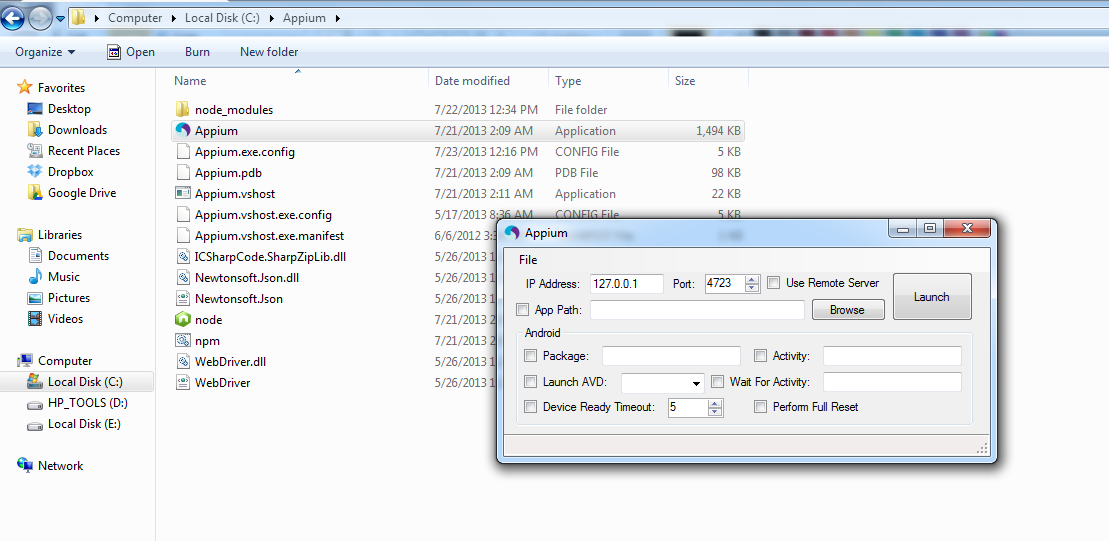
The standard environment has granular, per-test To either Run your test in our standard environment or Run your

#HOW TO RUN APPIUM SERVER ZIP FILE#
zip file must follow the formatĭescribed in Configure your Appium test package. This may contain any combination of spaces or punctuation.īrowse to and choose the. iOS Applications must be built for real devices, not the Simulator. Zip-with-dependencies in the build output directory every time

The following plugin uses the preceding assembly to create a. To package tests and all dependencies into a single. Modify pom.xml to use maven-assembly-plugin Specify the Ruby version (for example, 2.5.1) in the test spec YAML file. You can use any Ruby version when you run Appium Ruby tests on Device Farm. In custom mode, both Python 2.7 and Python 3 (3.7) are available. In standard mode, Device Farm supports Python version 2.7 for running tests. Specify the Node.js version in the test spec YAML file. You can use any Node.js version when you run Appium Node.js tests on Device Farm. Java (JUnit)Ĭurrently, Device Farm supports Java 8 for running Appium Java tests. Java (TestNG)Ĭurrently, Device Farm supports Java 8 for running Appium Java tests. To use all the features of the framework, like annotations, choose a custom test environment, and use the AWS CLI or the Device Farm console to upload a custom test spec.

ln -s /usr/local/avm/versions/$APPIUM_VERSION/node_modules/.bin/appium /usr/local/avm/versions/$APPIUM_VERSION/node_modules/appium/bin/appium.js
#HOW TO RUN APPIUM SERVER INSTALL#
# To install a newer version of Appium such as version 1.9.1:


 0 kommentar(er)
0 kommentar(er)
